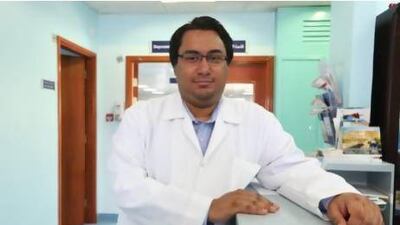ABU DHABI // Forty patients with mental illnesses that range from severe schizophrenia to personality disorders have had their lives transformed by doctors at a small psychiatric treatment centre in Abu Dhabi.
Psychiatric patients who would normally be too unstable to leave their homes are being integrated into society using training programmes and group therapy.
"We hope we have been able to demonstrate that psychosocial rehabilitation is alive and well in Abu Dhabi and, through additional support, we can expand and duplicate our success in every other region in the UAE," said Dr Faisal Al Nowais, an Emirati psychiatrist at the centre.
The centre accepts patients aged 18 to 65, of all nationalities. "We have a structured programme that runs five days a week with separate days for men and women," Dr Abdulla said. "The patients are exposed to psychotherapy groups, exercise groups and social groups. The programmes range from English learning courses to beauty courses."
Most of the courses are compulsory. Others are suggested by patients or staff because they provide useful vocational and life skills. "The beauty course was suggested by a patient. Other patients suffer from hair loss, so the course helps them deal with issues," Dr Abdulla said.
With limited resources, the centre depends on volunteers to teach its courses.
"I studied medicine and, because I didn't find a job but really wanted to help patients, I decided to volunteer," said Rabna Al Alami, 27, who teaches English and computer classes to the patients. "With most of the patients you can see the difference you make in their lives."
This has also encouraged her to focus on volunteering for psychiatric causes.
"Most of these patients have never left their rooms and have been neglected by society and their own family," said Dr Hanaa Fathy, a staff psychologist. "I have patients who tell me they only feel that they matter or are human when they come to the centre.
Dr Fathy helps patients to deal with society and interpersonal relationships. Activities that are routine to the average person are difficult and even new to psychiatric patients, she said.
"A psychiatric patient might pay Dh10 for a can of Pepsi, or would not know the way to their own home or how to go to the supermarket. I teach them all these things and how to deal with society and others."
The centre hopes to find sponsors so it can conduct one-on-one sessions with patients.
"Society does not realise the importance of psychotherapy, and it is not just the medication that makes a patient better. After therapy, some of our patients were able to reduce their medication," Dr Fathy said.
The centre is supported by the Behavioural Sciences Pavilion of Sheikh Khalifa Medical City.
It is also part of the hospital's community psychiatry department, which has case management teams who visit patients in their homes, and a hotline for questions and concerns.
Anyone in need of guidance can call 819 4460 between 7.30am and 3.30pm.

